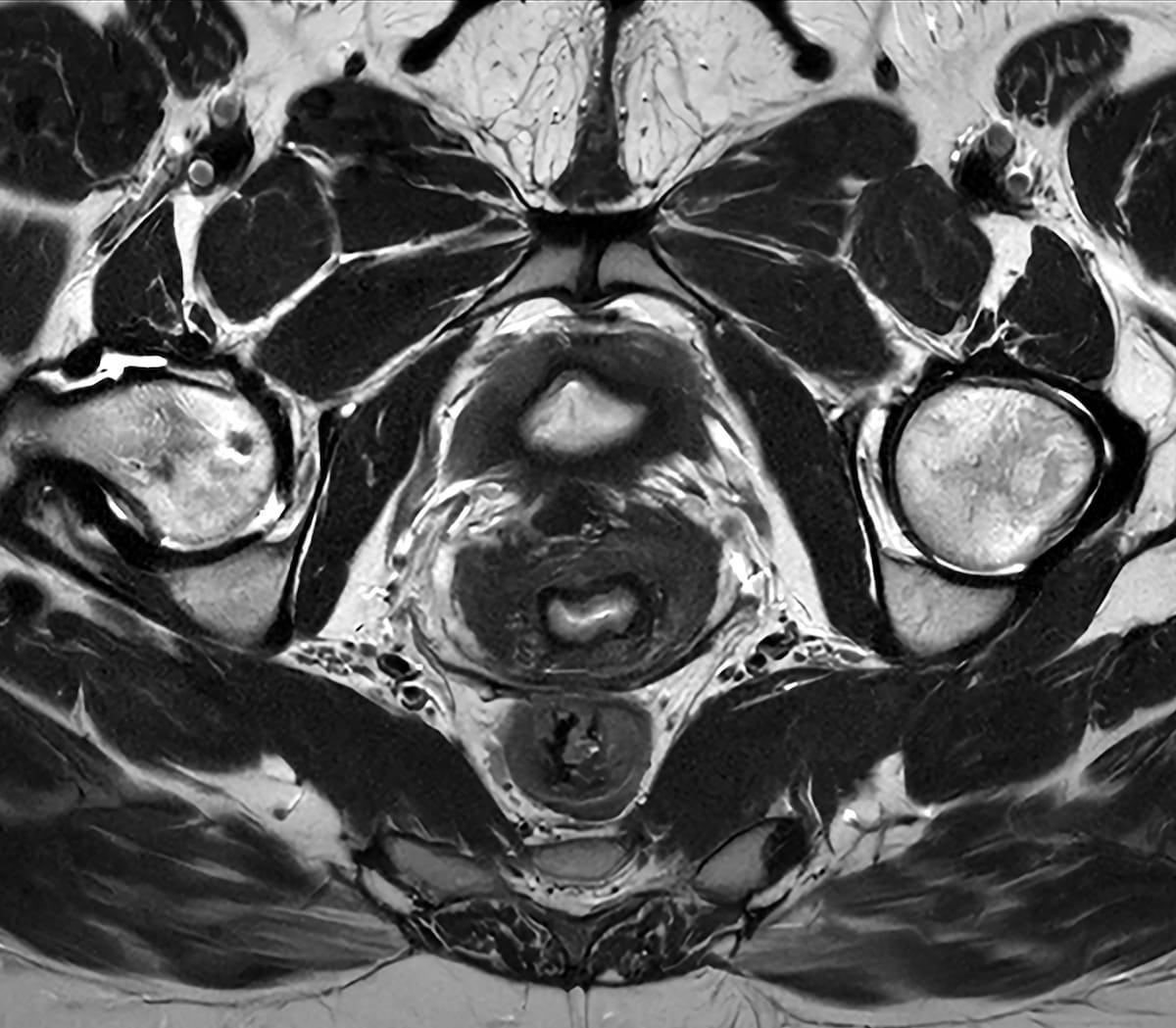Philips Launches AI-Powered SmartSpeed Precise MRI Software at ECR
The updated software reportedly enables a threefold improvement in MRI scan time and enhanced image sharpness.
Philips has unveiled SmartSpeed Precise, an artificial intelligence (AI) software that may significantly bolster scan times and image sharpness with MRI scans.
Launched at the European Congress of Radiology (ECR) conference, the SmartSpeed Precise software allows up to a threefold reduction in MRI scan times, according to Philips.
Here one can see a pelvic MRI with use of the SmartSpeed Precise technology on a Philips Ingenia Evolution MR 3T scanner. The SmartSpeed Precise software, which is being launched at the European Congress of Radiology (ECR) conference, reportedly facilitates an 80 percent improvement in image sharpness on MRI. (Image courtesy of Philips.)

Incorporating the company’s Compressed SENSE and SmartSpeed technologies, Philips said the next-generation SmartSpeed Precise software facilitates detection of subtle abnormalities with an 80 percent improvement in image sharpness.
“We are impressed by the extremely sharp and crisp images, diagnostic confidence, and fast scans delivered by the dual-AI SmartSpeed Precise solution. We expect it will set a new standard in clinical performance with its ease of use, high image quality, and acceleration controlled by a single parameter,” noted Wayne Picker, a vice president of clinical technology at Prenuvo, Inc.
FDA Clears Virtually Helium-Free 1.5T MRI System from Siemens Healthineers
June 26th 2025Offering a cost- and resource-saving DryCool magnet technology, the Magnetom Flow.Ace MRI system reportedly requires 0.7 liters of liquid helium for cooling over the lifetime of the device in contrast to over 1,000 liters commonly utilized with conventional MRI platforms.
SNMMI: Botox May Facilitate Relief from Dry Mouth Side Effect of PSMA-Targeted Radiopharmaceuticals
June 25th 2025For patients being treated with radiopharmaceutical agents for metastatic prostate cancer, the combination of botulinum toxin and an anti-nausea patch led to a 30 percent reduction in PSMA uptake in the salivary glands, according to preliminary research findings presented at the SNMMI conference.
SNMMI: Can 18F-Fluciclovine PET/CT Bolster Detection of PCa Recurrence in the Prostate Bed?
June 24th 2025In an ongoing prospective study of patients with biochemical recurrence of PCa and an initial negative PSMA PET/CT, preliminary findings revealed positive 18F-fluciclovine PET/CT scans in over 54 percent of the cohort, according to a recent poster presentation at the SNMMI conference.